Latest News
08 July 2024
Can quantum computers solve an old riddle in composites design?
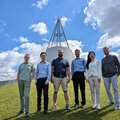
A team of researchers at TU Delft are the first in the world to apply quantum computing to solve an old riddle in the design of fibre-reinforced composite materials: how to determine the optimal sequence of angles at which the material’s layers are composed and stacked. This layering determines the mechanical properties of the material, essential for the application of composites for lightweight aircraft, wind turbine blades, cars or even batteries, etc. The QAIMS team have now gone through to the final rounds of the Airbus-BMW Quantum Computing Challenge where they will pitch their approach to ‘push the boundaries of quantum tech for mobility.’
05 July 2024
Education Inspectorate’s reaction to Plan for Change

This week, the Education Inspectorate shared its findings on TU Delft's social safety improvement plan: the Plan for Change. In its findings, the inspectorate is very critical on many points.
01 July 2024
TU Delft launches future proof research reactor with cold neutron source
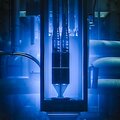
More advanced and faster research is possible with the commissioning of the cold neutron source and the improved instruments of TU Delft Reactor Institute (RID) as of 27 June 2024. The first results of research are expected in October 2024, around the official reopening of the reactor.
28 June 2024
TU Delft student team designs a self-supporting lunar village
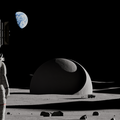
Dream Team ‘Space Oasis Delft’ has designed a lunar village for 150+ residents. The dwellings have elements of biomimicry, contain a self-sustaining biosphere and simulate a day-night cycle as well as seasons. Smart design choices safeguard not only the occupants' safety but also their mental well-being.
28 June 2024
June edition Delft Matters published

The new Delft Matters is out and is full of all the great things that are happening in our TU Delft community.
26 June 2024
TU Delft congratulates its oldest PhD graduate ever
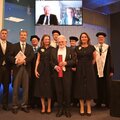
21 June 2024
TU Delft presents faster and safer suit for kiter Annelous Lammerts

For the first time, kitesurfing is on the Olympic Games programme, with the Dutch Annelous Lammerts as one of the top participants. Using the Formula Kite, a hydrofoil under the kiteboard, Lammerts can reach speeds of over 70 km/h. This speed involves increased risks and aerodynamic challenges. Therefore TU Delft, in collaboration with TeamNL and textile innovation start-up WEEV Textiles, developed an advanced aerodynamic and cut-resistant suit.
21 June 2024
David Abbink receives Stevin Prize

David Abbink ontvangt dit jaar de NWO Stevinpremie. De Stevinpremie en de Spinozapremie zijn de hoogste Nederlandse onderscheidingen in de wetenschap. Ze worden jaarlijks uitgereikt aan vier mensen in totaal ‘voor hun uitmuntende, baanbrekende en inspirerende werk’, aldus NWO, die dit nieuws vandaag bekend maakt. Abbink ontvangt 1,5 miljoen euro te besteden aan wetenschappelijk onderzoek en kennisbenutting. Hij ontvangt de Stevinpremie met name voor de maatschappelijke impact van zijn onderzoek.
20 June 2024
TU Delft student team Eco-Runner aims to attempt a world record with hydrogen car
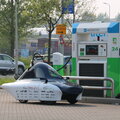
20 June 2024
Lee Kuan Yew Water Prize for Gertjan Medema
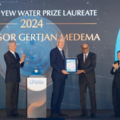
Professor Gertjan Medema has been awarded the Lee Kuan Yew Water Prize 2024 for his groundbreaking research and significant contributions to sewage epidemiology for virus detection in wastewater during the COVID-19 pandemic. His timely research breakthrough enabled the use of wastewater surveillance during the COVID-19 pandemic. President Tharman Shanmugaratnam of the Republic of Singapore presented the Lee Kuan Yew Water Prize medallion to Gertjan Medema. At the beginning of the pandemic, he and his team were the first to detect the presence of SARS-CoV-2 in wastewater in the Netherlands. His research enabled the use of wastewater surveillance during the COVID-19 pandemic to stop the spread of the virus and had a global impact.
